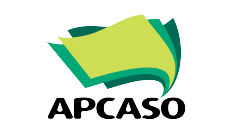This is the fourth in a series of case studies highlighting the results of the “Global Fund Realities on the Ground” a research study conducted by APCAS0’s APCRG Platform to measure civil society and communities’ experience when engaging in the key stages of country dialogue process under the Global Fund 2017-2019 funding cycle.
It has been a bit of an uphill struggle for Sri Lankan community organisations and key populations to engage in the Global Fund Processes at the country level, as the communities and civil society have not been meaningfully engaging in such processes historically due to many reasons. The Global Fund 2020-2022 grant cycle may provide a valuable opportunity to the communities and civil society in Sri Lanka to emerge stronger and develop a unified voice and to make them essential partners of the Country Coordinating Mechanism (CCM) and the Global Fund grant implementation.
The difficulties of engaging in the Global Fund grant cycle was acknowledged as much in a survey conducted by APCASO in 2018, in which Sri Lankan civil society respondents to the survey reported that one of the milestones of their engagement had been in the development of the National HIV Strategic Plan for the period of 2018-2022 but had been minimal thereafter. They had not significantly engaged in the drafting of the funding request, in the grant-making nor in grant monitoring formally.
Niluka Perera, who is part of the CARE consortium, a partnership between three civil society organizations in Sri lanka working on strengthening community engagement at the CCM level, observes that “community organizations had not yet gained enough information and knowledge on how they should be engaging.” He shared that with the support of APCASO and GIZ BACKUP Health Project, CARE consortium was established with the aim of building the capacity of civil society and key populations led organizations to enrich their knowledge of Global Fund-related processes, the roles and responsibilities of the CCM and its members, and the importance of engaging throughout the grant cycle process in order to facilitate meaningful community engagement
One major capacity building effort that has made a difference in the way civil society (CS) has been engaging among themselves is through the community meetings facilitated by the CARE Consortium before and after each CCM meeting. Currently, there are 7 seats reserved for civil society at the Sri Lanka CCM, and among them 1 seat is allocated for key populations, 1 seat for the PLHIV community and 5 seats for civil society organizations. The pre and post CCM meetings serve as a platform that enables the representatives of these groups to air their questions and concerns, and consult with other key populations-led and serving organizations including individual advocates and activists and strategize for a more constructive engagement at the CCM.
“Part of our journey has also been on navigating these cultural norms around power relations in terms of community engagement, so that the CCM can become more accepting and accommodating of community voices and input.“
They also see the potential emergence of a stronger civil society in the country if a key populations network could be formed unifying key population led and serving organizations in order to facilitate stronger and more collaborative advocacy.
The Sri Lankan situation highlights the need to strengthen inter-KP mobilisation, as well as sustained awareness, knowledge and capacity building on the Global Fund processes including community, rights and gender concerns. In countries where communities are still not well equipped to step up to their role in the CCM or feel hampered by power inequalities, they may benefit from communication-related or leadership trainings to help them to handle power dynamics between members.
Perera says that the formation of this network would need to take its own organic process. While the Care Consortium and support groups such as APCASO-APCRG could certainly facilitate, “communities have to realize that they need it, and that they own it.”
Source
APCASO APCRG, 2019. Global Fund: Realities on the Ground report, rertrieved from https://apcaso.org/apcrg/wp-content/uploads/2020/01/Global-Fund-Realities-on-the-Ground_APCASO.pdf
